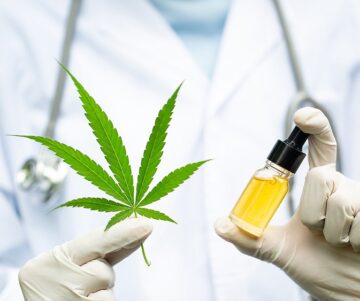
About Withdrawal Symptoms for Alcohol and Some of the Views of Renowned Prof. & Doctors Regarding Withdrawal Symptoms
admin | April 1, 2023 | 0 | Health
According to Chang and Kosten, alcohol detoxification is a period of medical treatment that typically includes counselling to assist a person in overcoming their physical and psychological dependence on alcohol. The immediate goals of alcohol detoxification are to assist the patient in achieving a substance-free state, treat any comorbid medical or psychiatric conditions, and alleviate the immediate withdrawal symptoms. According to a recent study, these goals help the patient get ready to enter long-term treatment or rehabilitation, which is the ultimate goal of detoxification. The long-term maintenance of an alcohol-free state and the incorporation of psychological, family, and social interventions to help ensure its persistence are the goals of long-term treatment or rehabilitation.
Outpatient and Inpatient Detox Process
Liquor detoxification can be finished securely and successfully in both long term and short-term treatment settings. To know more click on the referenced link https://detoxtorehab.com/phases-alcohol-withdrawal. Typically, patients receiving outpatient detoxification are expected to travel daily (except on weekends) to a hospital or other treatment facility for sessions. The meetings might be planned for daytime or night hours, contingent upon the program. On the first day of outpatient detoxification, the initial assessment, which includes an intake history, a physical examination, the ordering of laboratory studies, and the initiation of detoxification treatment, typically takes one to two hours. Resulting meetings might go from 15 to 30 minutes.
Some Points to Consider
- Sessions can last several hours each day if the detoxification program is combined with a program in a day hospital.
- Treatment can last anywhere from three to fourteen days.
- In one study, outpatient treatment took an average of 6.5 days, which is significantly less than the average of 9 days for inpatient detoxification.
- For the duration of their treatment, which can last anywhere from five to fourteen days, inpatient patients are admitted to a hospital or other facility.
Withdrawal Symptoms
Assessment and treatment of acute withdrawal symptoms, which can be mild (such as tremor and insomnia) or severe (such as autonomic hyperactivity, seizures, and delirium), are the first steps in either setting’s detoxification process. A lot of the time, medications are given to a patient to help them feel better during withdrawal. The most commonly used drugs for this purpose are benzodiazepines like diazepam and chlordiazepoxide. Their effectiveness is well-established. Benzodiazepines not only alleviate the symptoms of alcohol withdrawal, but they also prevent alcohol withdrawal seizures, which are thought to occur in one to four percent of those who suffer from the condition.
Views of Prof. & Doctors
Patients who have a history of seizures unrelated to alcohol withdrawal must take anticonvulsants in addition to benzodiazepines. Extra parts of liquor detoxification might incorporate schooling and advising to assist the patient with planning for long haul therapy, participation at a gatherings, sporting and social exercises, and clinical or careful counsels.


